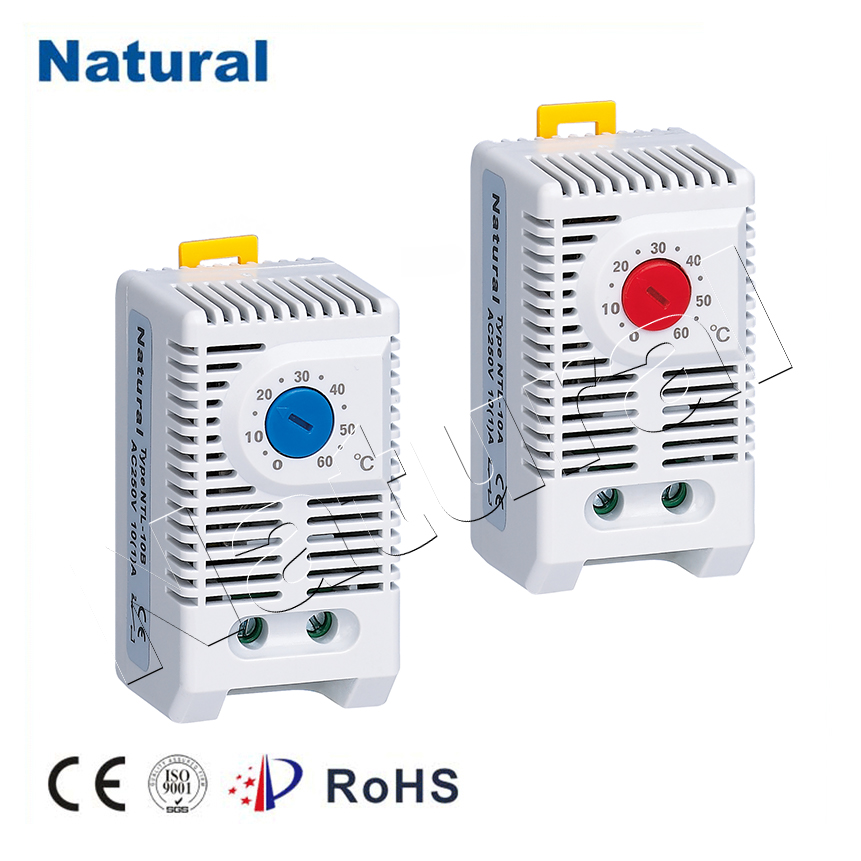Industrial cooling systems play a pivotal role in maintaining the efficient operation of various manufacturing processes. These systems are essential for preventing overheating of machinery, maintaining product quality, and ensuring a safe working environment for employees. To achieve optimal cooling efficiency, thermostats have become indispensable tools in the industrial sector.

The Significance of Industrial Cooling Industrial cooling is vital across a wide range of industries, including automotive, electronics, aerospace, and food processing. Machinery and equipment in these sectors generate significant amounts of heat during operation. Without proper cooling, overheating can lead to equipment malfunctions, reduced product quality, and even costly downtime. Furthermore, industrial cooling is crucial for safety and environmental reasons. High temperatures can pose hazards to workers, and excessive heat emissions can contribute to increased energy consumption and carbon emissions. To address these challenges, industrial facilities increasingly rely on advanced cooling systems controlled by thermostats. The Role of Thermostats Thermostats are devices that sense temperature and control heating or cooling systems to maintain a specific temperature range. In industrial cooling applications, thermostats are employed to monitor and regulate the temperature of equipment and processes. Here are some key ways thermostats enhance industrial cooling: 1. Precision Control Thermostats offer precise temperature control, ensuring that cooling systems activate and deactivate at the right times. This level of control is crucial for maintaining consistent temperatures in industrial processes, which is often critical for product quality and equipment longevity. 2. Energy Efficiency Efficiency is paramount in industrial settings. Thermostats help achieve this by optimizing cooling systems’ energy consumption. They ensure that cooling is applied only when necessary, reducing overall energy costs and environmental impact. 3. Preventing Equipment Damage Overheating can damage industrial equipment, leading to costly repairs or replacements. Thermostats act as guardians by continuously monitoring temperature levels and activating cooling systems to prevent equipment from exceeding safe operating temperatures. 4. Safety Assurance In high-temperature environments, worker safety is a top priority. Thermostats help maintain safe working conditions by preventing temperature-related accidents. They ensure that cooling systems are active when needed, mitigating potential risks. Advanced Thermostat Technologies As technology advances, so do the capabilities of industrial thermostats. Today, there are several cutting-edge features and technologies that enhance their effectiveness: 1. Remote Monitoring and Control Modern thermostats often offer remote monitoring and control capabilities. This enables industrial operators to monitor temperature conditions and adjust cooling systems in real-time from a central control station or even through mobile applications. This feature improves responsiveness and flexibility. 2. Data Logging and Analysis Thermostats can log temperature data over time, allowing for in-depth analysis and trend identification. This data-driven approach helps industrial facilities make informed decisions regarding cooling system optimization, predictive maintenance, and energy efficiency improvements. 3. Integration with Building Management Systems (BMS) Many industrial facilities use Building Management Systems (BMS) to control various aspects of their operations. Thermostats can integrate seamlessly with BMS, creating a unified and efficient control system that manages cooling along with other facility functions. Conclusion Industrial cooling is essential for maintaining optimal operating conditions, product quality, and worker safety in a wide range of industries. Thermostats are indispensable tools in this regard, offering precise temperature control, energy efficiency, equipment protection, and safety assurance. With advancements in technology, modern thermostats provide additional benefits like remote monitoring and data analysis, further optimizing industrial cooling systems. Investing in high-quality thermostats is a smart choice for any industrial facility looking to enhance its cooling efficiency and overall productivity.